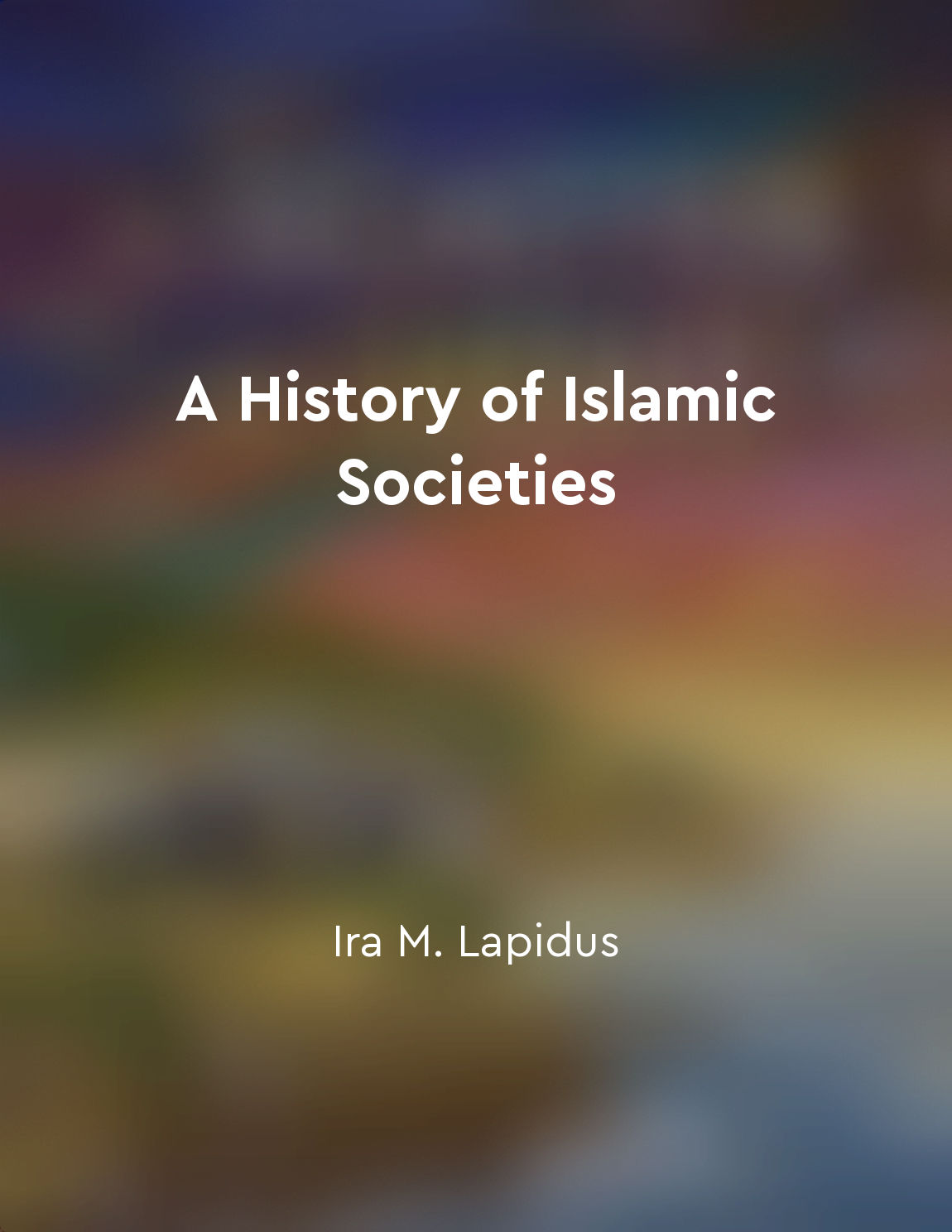Islamic law played a central role in shaping society from "summary" of A History of Islamic Societies by Ira M. Lapidus
Islamic law, also known as Sharia, is a comprehensive legal system that governs all aspects of Muslim life. It serves as a guide for both personal conduct and social order, encompassing religious rituals, moral standards, and legal principles. Sharia is derived from the Quran, the sayings and actions of the Prophet Muhammad, and consensus among scholars. This legal framework played a central role in shaping Islamic societies by providing a sense of unity and identity, as well as establishing norms and values that guided the behavior of individuals and communities. One of the key features of Islamic law is its emphasis on justice and equality. Sharia promotes social justice by ensuring that all members of society are treated fairly and equitably. It prohibits discrimination based on race, gender, or social status, and emphasizes the importance of charity and compassion towards the less fortunate. Additionally, Sharia seeks to protect the rights of individuals, including the right to life, property, and freedom of expression. Another important aspect of Islamic law is its role in regulating social relations and maintaining social order. Sharia addresses issues such as marriage, divorce, inheritance, and contracts, providing guidelines for resolving disputes and ensuring that relationships are conducted in a manner that is consistent with Islamic principles. By prescribing rules for behavior and interactions, Sharia helps to foster a sense of community and cohesion among Muslims. Furthermore, Islamic law serves as a moral compass for individuals, guiding them in their daily lives and helping them make decisions that are in accordance with Islamic teachings. It sets standards for ethical behavior and encourages virtues such as honesty, integrity, and humility. By promoting moral values and ethical conduct, Sharia contributes to the development of a virtuous and righteous society.- Islamic law played a central role in shaping Islamic societies by providing a comprehensive legal framework that governed all aspects of life. It promoted justice, equality, and social order, while also serving as a moral guide for individuals. Sharia helped to unify Muslim communities and establish norms and values that defined Islamic civilization.
Similar Posts
Hadīth compilers faced challenges in verifying sources
The compilers of Hadīth undoubtedly encountered significant challenges when it came to verifying the sources of the traditions ...
Hadith are used to clarify ambiguous meanings in the Quran
Hadith play a crucial role in expounding on the Quranic text by shedding light on any ambiguous or unclear meanings found withi...
Perseverance in trials
The concept of perseverance in trials, as outlined in the Qur'an, is a fundamental aspect of a believer's faith. In the face of...
The Quran as a source of wisdom
The Quran is a book of wisdom. It is a guide that provides direction and insight to those who seek it. The wisdom found in the ...
Seeking peace
The concept of seeking peace is a fundamental principle in the teachings of the Qur'an. It emphasizes the importance of promoti...


